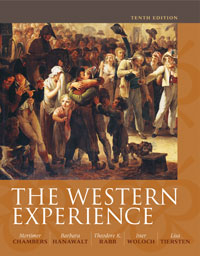1 A) secret pacts pledging mutual defense or neutrality in case of attack by another power. B) diplomatic maneuvers to keep France isolated to avoid the threat of its revenge over Alsace-Lorraine. C) the careful but decisive use of warfare to gain national ends against diplomatically isolated enemies. D) maintaining peace among the European powers by allowing them balanced gains outside Europe. E) a series of negotiated settlements designed to bring stability to the Balkans. 2 A) the isolation of France B) common fear of Germany C) the need to preserve colonial holdings D) France's desire to retake Alsace-Lorraine E) British fear over losing dominance of the seas 3 A) its abrasive manner and aggressive policies. B) its repeated betrayal of its allies. C) the cunning of its enemies and perfidy of its allies. D) its inability to back its words with power. E) its penchant for unilateral military intervention. 4 A) Germany's colonial gains. B) the German navy's challenge to British sea power. C) Germany's huge army. D) Germany's economic competition. E) Germany's advantages in weapons technology. 5 A) Austria-Hungary's rivalry with Russia in the Balkans. B) France's desire to get revenge against Germany for 1870. C) Britain's long-standing commitment to Belgian neutrality. D) Italy's colonial rivalry with France in North Africa. E) Germany's support for Austria-Hungary in the Balkans. 6 A) armies moved with an unanticipated speed because of advances in technology. B) it did not end quickly, since technology favored the defense, cavalry was obsolete, and infantry could not move quickly. C) naval battles rather than battles on land proved to be the decisive factor. D) the German army did not live up to the reputation it had gained in 1870. E) Germany's lightening strike through Belgium knocked France out of the war. 7 A) a permanent non-aggression pact with the Allies B) monetary reparations for any damages during the war C) territory along its border with Austria-Hungary, and colonial holdings D) valuable trade pacts with Britain and France E) access to some of Britain's coveted shipping lanes 8 A) gradually wore Germany down. B) ended up at the same point they began. C) forced Austria-Hungary out of the war. D) forced a British intervention in the Balkans. E) eventually brought the collapse of Russia. 9 A) 100,000 Frenchmen and 200,000 Germans in the Battle of the Marne in September 1914. B) over 300,000 Frenchmen and almost 300,000 Germans at Verdun from February to July 1916. C) more than 300,000 on each side during the Battle of the Somme from July to November 1916. D) more than 1,000,000 Russians in Brusilov's offensive during 1916. E) more than 30,000 Senegalese, who lost their lives fighting for the French in a series of campaigns. 10 A) played no significant role in the war. B) was decided by the clash of the British and German fleets at Jutland. C) was important more in terms of supply-lines than combat. D) was important mainly because Britain was able to launch amphibious attacks on the German flanks. E) was important only in the Mediterranean region. 11 A) taking control of the economy to maximize production for the war effort. B) suppressing domestic dissent. C) drawing women into traditionally male jobs to replace men conscripted into the army. D) abolishing social distinctions in order to promote social cohesion. E) censoring the press. 12 A) relied on an extensive application of laissez-faire economics. B) developed the most fully controlled economy of any of the combatants. C) saw its economy quickly collapse. D) was the most poorly supplied of the combatants. E) increased its own agricultural production almost five-fold. 13 A) Italy, Germany, and Spain. B) Austria-Hungary, Germany, and Japan. C) Germany, Italy, and Hungary. D) Germany, Austria, and Italy. E) Japan, Italy, and Germany. 14 A) it caused widespread and profound psychological disillusionment, social instability, and political turmoil. B) it transformed Europe from creditor to debtor status. C) it killed between 10,000,000 and 13,000,000 people, including about 4,000,000 civilians. D) it increased the status of the aristocracy and middle class relative to the workers and peasantry. E) it redrew the maps of Europe as new nations emerged from the ashes of old empires. 15 A) the Austro-Hungarian. B) the Ottoman. C) the German. D) the Russian. E) the British. 16 A) territorial losses in the west and the east. B) heavy reparations. C) complete disarmament. D) responsibility for the war. E) an end to colonial empire. 17 A) nationality B) strategic needs C) the principle of legitimacy D) security interests E) geographical or "natural" boundaries 18 A) the leftist "Spartacist" uprising in 1919. B) hyper-inflation. C) rightist paramilitary activity. D) war with Poland and Hungary. E) no significant group with loyalty to the existing regime. 19 A) France and Britain. B) Scandinavia. C) Italy, Greece, and Hungary. D) Belgium. E) the Netherlands. 20 A) the Dawes Plan, which regularized Germany's reparations payments and arranged for American loans. B) the Locarno Pact, which settled Germany's border with France. C) the Kellogg-Briand pact, which renounced war "as an instrument of national policy." D) the Washington Conference, which limited the number of major warships in the worlds' navies. E) the League of Nations, which successfully established the Permanent Court of International Justice.





